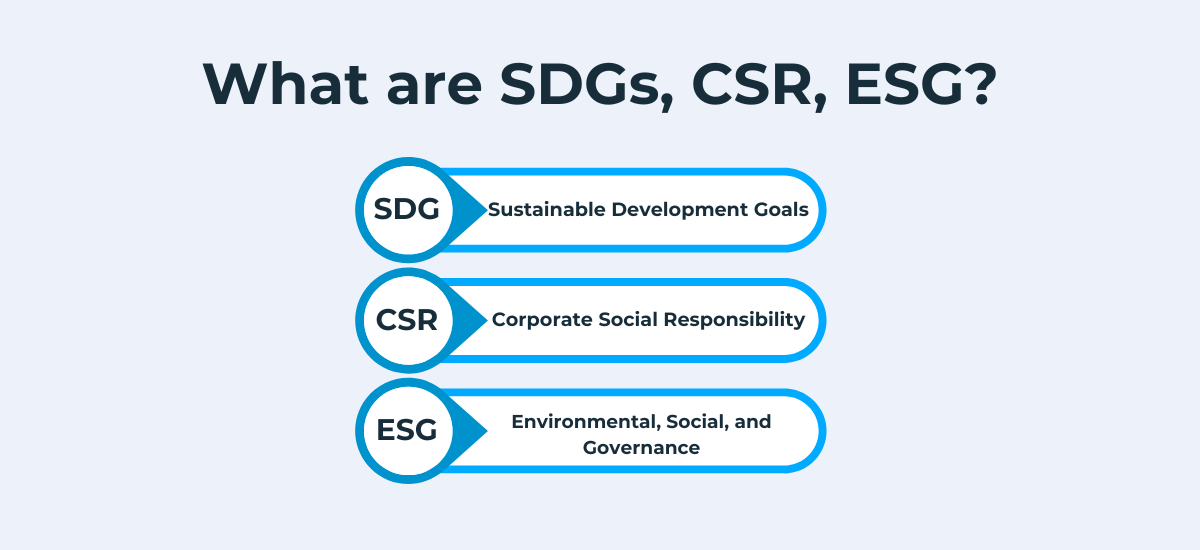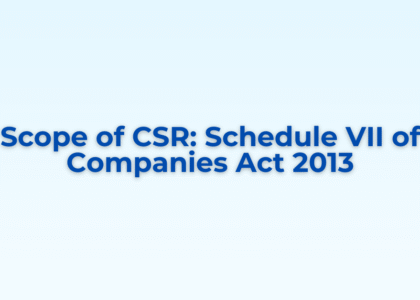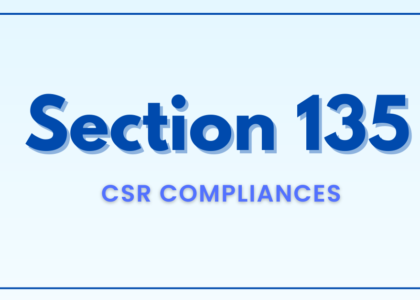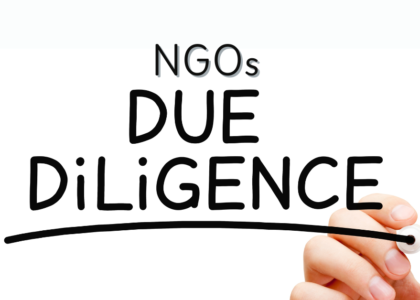In recent years, the terms Sustainable Development Goals (SDGs), Corporate Social Responsibility (CSR), and Environmental, Social, and Governance (ESG) have gained increasing prominence worldwide. Reporting on parameters relating to non-financial performance is increasingly recognized as a crucial aspect of the business operations; however, achieving the same can be quite challenging. Presently, companies have started paying more attention to corporate governance information and disclosures in CSR, BRSR and sustainability reports. For consumers as well as supply chains, evaluation of CSR and ESG have become increasingly important and have become indicators for corporate evaluation and financial planning.
Numerous sectors, encompassing the financial sector, real estate construction, service industries, healthcare, catering and food, government bodies, educational institutions, multinational companies, and small to medium enterprises have taken proactive steps to support “sustainable development initiatives”.
Sustainable Development Goals (SDGs), Corporate Social Responsibility (CSR), Environmental, Social, and Governance (ESG)- Though they share similarities; however, their interpretation of certain aspects are distinctly different.
Do You Know the Differences between SDG, CSR and ESG?
SDGs: Sustainable Development Goals
Sustainable Development Goals are the 17 sustainable development areas proposed by the United Nations in 2015 as specific targets for governments and corporations worldwide to achieve sustainable development by 2030. It is hoped that “all countries and their people around the world” will strive for these goals. It’s integrated into a company’s overall strategy and vision.
There are 169 targets under the 17 core goals. These goals are often interconnected. As an example, the core SDG goals mentioned in the Paris Climate Agreement are linked to actions and thinking of CSR and ESG. List of activities mentioned in schedule VII of Companies act 2013 is connected with 17 Sustainable development goals.
17 SDGs are No poverty, zero hunger, good health and well-being, quality education, gender equality, clean water and sanitation, affordable and clean energy, decent work opportunities and economic growth, sustainable industry, improved innovation and infrastructure, reduced inequality, sustainable cities and communities, responsible consumption and production, climate action, protection of life below water & on land, peace, justice, strong institutions, and strong partnerships to achieve these goals.
CSR: Corporate Social Responsibility
CSR in India has evolved through different phases, like community engagement, socially responsible production, and socially responsible employee relations. CSR is a broad collection of sustainable activities aimed at making businesses accountable. CSR focuses on employees, customers and communities, aiming to enhance corporate reputation and build stronger relationships with these groups. CSR is typically driven by a company’s internal values and ethical commitments to ‘doing the right thing’.
The Companies Act, 2013 has introduced the concept of CSR in India to the forefront via section 135 which is applicable to several companies based on the threshold limits. The company must report on their CSR initiatives in CSR report and Form CSR-2.
A company will take responsibility to promote growth in society and mainly focus on their individual “enterprise” as compared to the “global” goals of SDGs.
CSR is often seen as the predecessor of ESG, leading the way in making businesses more socially responsible and making them think about their impact on society, employees, shareholders and other stakeholders.
ESG: Environmental, Social, and Governance
- Environmental: biodiversity, climate change strategy, energy efficiency, etc.
- Social: equal opportunities, human rights, health, and safety, etc.
- Governance: business ethics, shareholder democracy, compliance, etc.
Environmental, Social, and Governance, these three broad areas can provide a range of targets for a business to meet and improve its goal towards sustainability and lower the risk level across various factors. They include aspects like climate change, human rights, inclusion and diversity and more.
ESG is primarily focused on investors, shareholders and financial stakeholders who use ESG data to make investment decisions. ESG is largely investor-driven, with financial markets increasingly using ESG criteria to make informed investment decisions. Companies with strong ESG performance are seen as less risky and better positioned for long-term success.
While CSR goals are a broad concept, ESG focuses on the specific actions that can be implemented to realize these goals.
ESG is evaluated through ESG metrics and scores, which are assessed by rating agencies and financial institutions. The United Nations published “Who Cares Wins” in 2004, proposing: “ESG scores can show a company’s performance and indicate its potential for sustainability as well as financial performance. A company with a higher ESG score can gain the trust of investors and maintain long term credibility.
ESG reporting in India commenced in 2009 when the Ministry of Corporate Affairs (MCA) issued voluntary guidelines on Corporate Social Responsibility. From Business Responsibility Report to National Guidelines on Responsible Business Conduct, ESG reporting in India has moved to Business Responsibility and Sustainability Report framework.
The Securities and Exchange Board of India (SEBI) mandated disclosure of ESG factors in form of Business Reporting and Sustainability Reporting (BRSR) by top 1,000 listed companies by market cap from FY 2022-23.
Integration of SDG, CSR and ESG-
It is important to note that Sustainability, ESG and CSR are all essential elements of modern business strategy. By integrating sustainability, ESG and CSR into their business strategy, companies can enhance their resilience, meet stakeholder expectations and contribute to a better future for both people and the planet.






